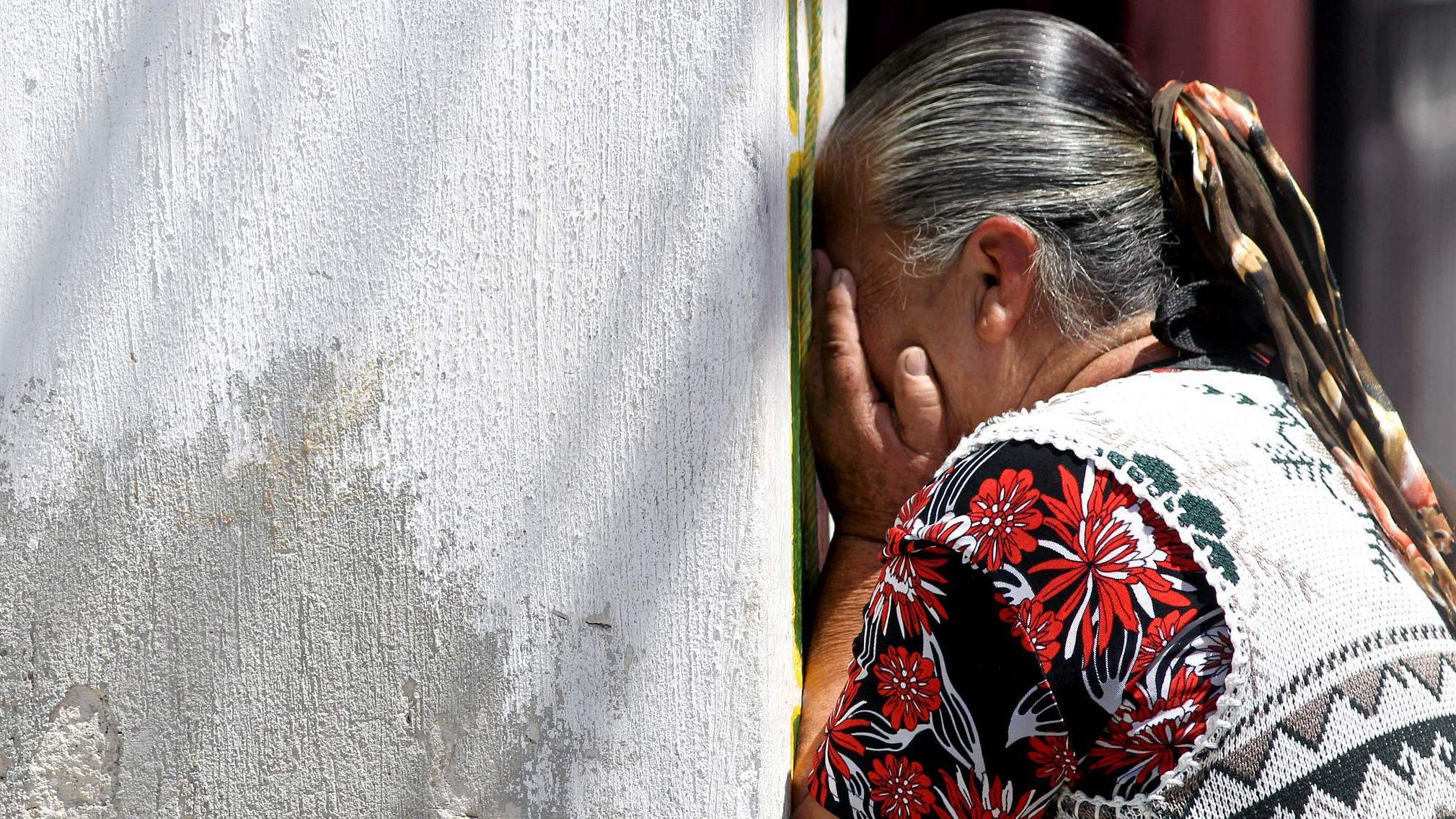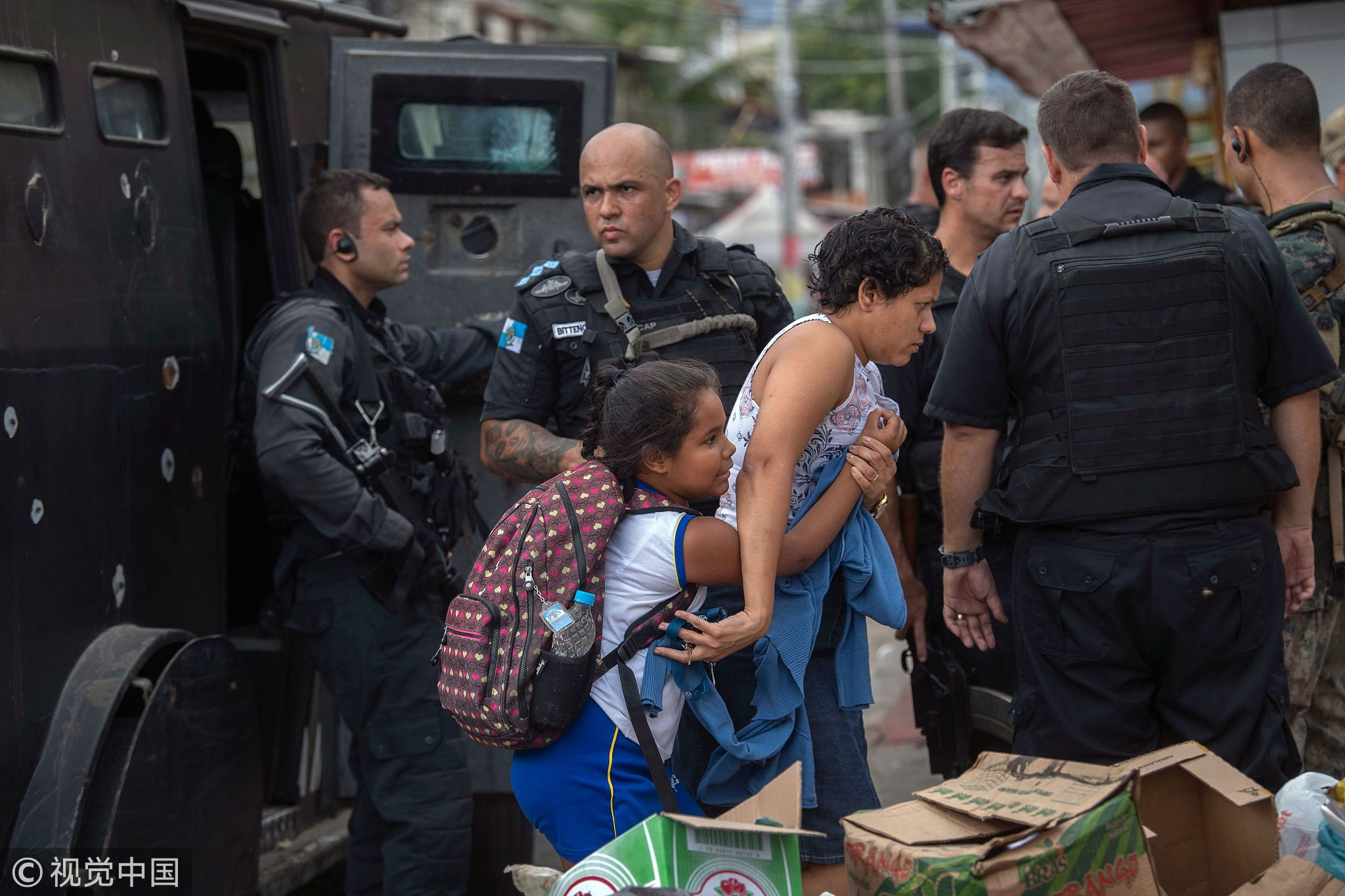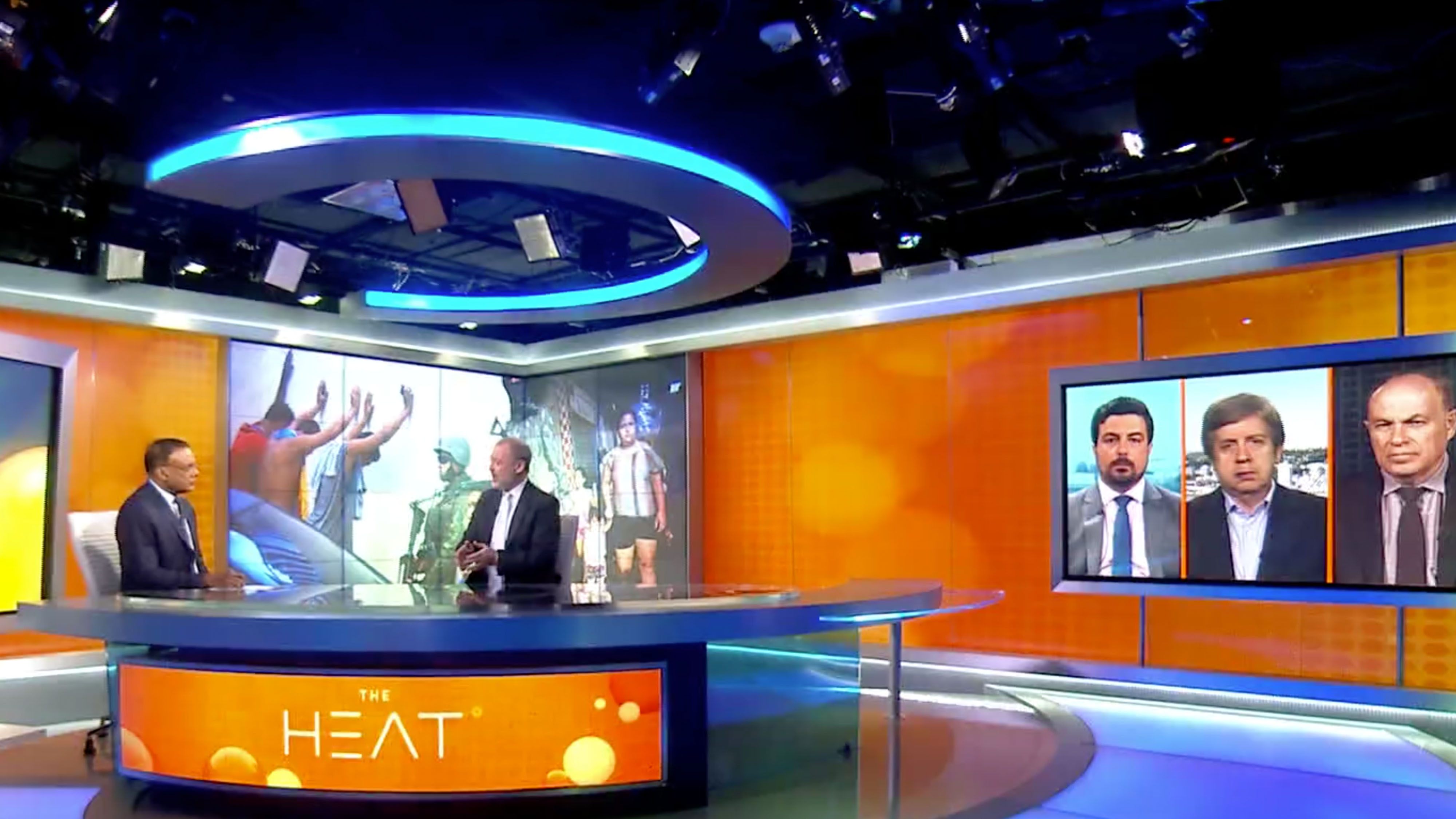
Opinions
09:56, 25-May-2018
The Heat: What's behind the surge in violence in Latin America?
CGTN's The Heat

One third of the world’s homicide cases occur in Latin America, a region with just eight percent of the global population. It’s an eye-opening figure coming from a report released last month by a think tank based in Rio de Janeiro.
Antonio Sampaio, a research associate at the International Institute for Strategic Studies and an expert on Latin America violence, highlighted two factors impacting the situation in Latin America.
"One is that Latin America is the most urbanized of all developing regions," he said. As Latin American countries have around 80 percent of their population living in cities, just like the US and Europe, "cities tend to congregate these risk factors that lead to violence and criminality."

A mother gets her child to safety during a military police operation at "Cidade de Deus" (City of God) favela in Rio de Janeiro, Brazil, May 3, 2018. /VGC Photo
A mother gets her child to safety during a military police operation at "Cidade de Deus" (City of God) favela in Rio de Janeiro, Brazil, May 3, 2018. /VGC Photo
The second element, as Sampaio explained, is "organized crime and the illicit transnational criminal economies that drive them. The report cites Mexico, Venezuela, and Brazil as being the most violent countries in Latin America. And these three countries, they tend to concentrate on drug trafficking routes."
Sampaio therefore believed that the violence appeared in Latin America is a global problem, "but it funnels itself through Latin America."
Denis Frate, a director of the Brazilian Association of Security Professionals, pointed out that the social gap in Latin America also significantly contributed to the level of violence.
01:30

Even though there were different levels of violence in different Latin American countries, Arturo Sarukhan, a former Mexican ambassador to the United States, said that there was a common chord in the explanation.
"Whether it is urbanization, whether it is polarization or social inequality, the weakness of the rule of law throughout the Americas or Latin American Caribbean is a common thread. It is the Achilles’ heel of most of these countries."
"Also the report mentions Venezuela, Brazil, (and) Mexico, but we have to remember that we are seeing very significant spikes, continued violence in Central America."
Sarukhan argued that Latin American countries, to some extent, have "become victims to the US and Mexico’s success by confronting some of the cocaine trafficking routes from South America, through Mexico, on the way to the United States."
Therefore, Sarukhan called for an enlightened and holistic approach to resolve this issue. "There is a recasting of how we talk about this, this whole notion of the war against drugs is a failed paradigm, believing that if you can impact supply then you will change demand patterns is completely wrong. It’s completely misguided."
The Heat with Anand Naidoo is a 30-minute political talk show on CGTN. It airs weekdays at 7:00 a.m. BJT and 7:00 p.m. Eastern in the United States.

SITEMAP
Copyright © 2018 CGTN. Beijing ICP prepared NO.16065310-3
Copyright © 2018 CGTN. Beijing ICP prepared NO.16065310-3